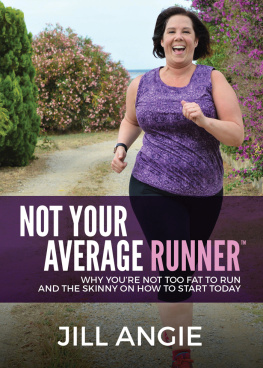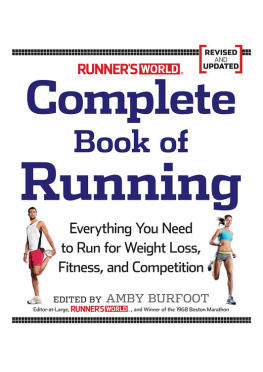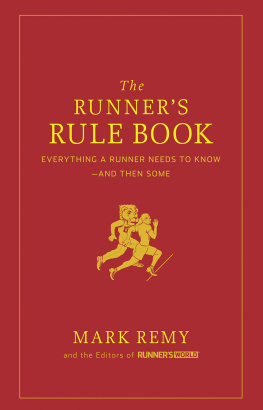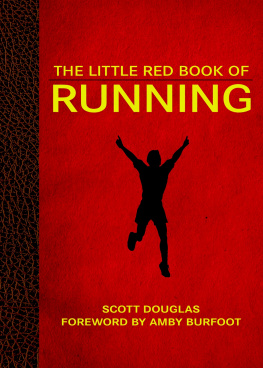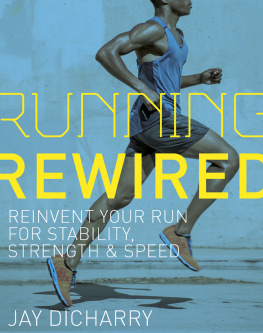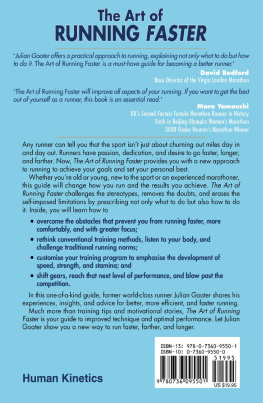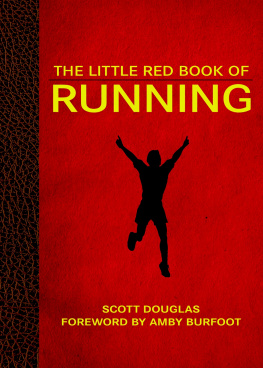NOT YOUR AVERAGE RUNNER
NOT YOUR
AVERAGE RUNNER
WHY YOURE NOT TOO FAT TO RUN,
AND THE SKINNY ON HOW TO START TODAY
JILL ANGIE

NEW YORK
LONDONNASHVILLEMELBOURNEVANCOUVER
NOT YOUR AVERAGE RUNNER
Why Youre Not Too Fat to Run and the Skinny on How to Start Today
2018 Jill Angie
All rights reserved. No portion of this book may be reproduced, stored in a retrieval system, or transmitted in any form or by any meanselectronic, mechanical, photocopy, recording, scanning, or otherexcept for brief quotations in critical reviews or articles, without the prior written permission of the publisher.
Published in New York, New York, by Morgan James Publishing in partnership with Difference Press. Morgan James is a trademark of Morgan James, LLC.
www.MorganJamesPublishing.com
The Morgan James Speakers Group can bring authors to your live event. For more information or to book an event visit The Morgan James Speakers Group at
www.TheMorganJamesSpeakersGroup.com.
ISBN 9781683504603 paperback
ISBN 9781683504610 eBook
Library of Congress Control Number: 2017902310
Cover and Interior Design by:
Chris Treccani
www.3dogcreative.net

In an effort to support local communities, raise awareness and funds, Morgan James Publishing donates a percentage of all book sales for the life of each book to Habitat for Humanity Peninsula and Greater Williamsburg.
Get involved today! Visit
www.MorganJamesBuilds.com
This book is dedicated to all my family and friends, for believing in my wildest dreams and helping me bring them to life.
Thank you.
ABOUT THIS BOOK
Run when you can, walk if you have to, crawl if you must; just never give up.
D EAN K ARNAZES
I f youre reading this book, I assume you either want to learn more about running or you accidentally clicked the Buy now button on your Kindle and youre silently cursing your itchy trigger finger. Regardless of the reason, here we are and I think weve got a lot to discuss.
First of all, what is this book about? On the surface, its about running. Specifically, how a woman carrying a few (or many) extra pounds can successfully become a runner in the body she has, right now. But this is also a book about side effects. Running is addictive, and after youve been doing it for a while, people will begin to notice undeniable changes in your behavior. They might not say anything to your face, but behind your back theyll be talking:
She just seems so much more confident latelydo you think shes had work done?
Perhaps its a new pair of heels? Lately she just seems taller.
Maybe shes having an affair. Three times a week, she disappears at lunch and comes back looking so satisfied. And a little sweaty.
Confidence: a classic side-effect of a running addiction.
But I digress. First, we need to chat about obesity, self-esteem, and Instagram. Trust methey are related.
Its no secret that waistlines are growing. Walk down any street and youll see plenty of people who meet the medical definition of obese. This phenomenon isnt limited to the USthe world is growing larger, and the trend doesnt appear to be slowing. Experts point to numerous causes: poor diets that rely too much on convenience (usually processed) foods, enormous portions, sprawling suburbs set up for driving instead of walking, and even the diet industry itself. And theyre rightthese issues are all part of the problem, along with dozens more that I havent named.
But there is another fundamental contributor, something that most people overlook when trying to understand why we are busting out of our clothes, airplane seats and restaurant chairs: self-esteem, or rather, the lack of it among women and girls in this country.
You could argue that low self-esteem is a symptom of the obesity epidemic, rather than the cause. I agree, to a point, but its more like the chicken and the eggwhich came first? Well probably never know, and it doesnt really matter. Low self-esteem and obesity are inextricably linked in our society.
Judging and shaming others for their physical imperfections has become a national pastime. Dont believe me? Pick up any tabloid and youre guaranteed to see photos of a Hollywood star who has dared to publicly frolic in a bikini, brazenly exposing two square inches of cellulite on an otherwise perfect butt. This phenomenon isnt limited to those in the public eye. A quick look at Instagram or Facebook will almost certainly yield snapshots of overweight and/or oddly dressed people, accompanied by a snidely worded status update mocking them. Why? If youre feeling fat, ugly, or in any way less than perfect yourself , its easy to look at someone elses body or sense of style and think I may have flaws, but at least I dont look like that .
But as cruel as women can be when judging others, we never criticize anyone more harshly than ourselves. If your girlfriend gains five pounds, you console her with something like Dont worry, its only water weight. But if you do the same? The little voice inside your head is more likely to sound something like You lazy piece of crap, youre a complete failure at life. If you think Im exaggerating, eavesdrop on your internal dialogue sometime. I mean really listen. Youll be shocked at what you say to yourself. If your best friend spoke to you that way, your friendship wouldnt last longso why is it OK to treat yourself so poorly?
Were constantly told that being overweight is a character flaw, and we believe it. We claim it as truth, as factual as the color of our eyes or the size of our feet. The earth is round. Being fat makes you a terrible person.
Obsession with perfection is everywhere: magazines, TV, internet, billboards, social media. The messages are insidious, and before we realize whats happened, the thought You dont measure up becomes an unshakable truth. We understand that the flawless images we see everywhere are a result of good lighting and Photoshop, but those nasty, whispery voices in our heads have already bought into the dogma of perfection with gusto, and they are not afraid to speak up and make their opinions heard.
So we spend hours and hours scrolling through Instagram or Facebook, painstakingly searching for inspiration and advice to help us come closer to the standard of perfection. Posting photos of extremely fit women as fitness inspiration (or as the practice is commonly known, fitspiration) seems like an innocuous, perhaps even useful, pastime. Whats wrong with looking at someone elses success and using it to inspire your own? Nothing, if thats whats truly taking place, but most of the time, it means comparing our own everyday bodies and lives to someone elses (Photoshopped) highlight reels, and then finding our own situation lacking.
One of my particular favorites is the catchphrase Strong is the new skinny thats currently sweeping the internet. Taken at face value, this seems like a great motivational truism. No longer do we need to be skinny to be accepted in society! Be strong! Kick butt! Take no prisoners!
Except every time Ive seen this slogan, it is plastered over a picture of an impossibly fit model with unreasonably low body fat. Dont get me wrongthe dedication and effort that it takes to achieve and maintain that type of body is admirable. Its just unrealistic for the vast majority of women (i.e., women whose job description is not fitness model). Strong really is the new skinny, because the new standard is just as (or perhaps even more) unattainable as the old. In addition to being impossibly thin, we now need to have rippling muscles and the ability to do a one-handed pushup while rocking a bikini. Were not just fat anymorewere fat, weak, and uncoordinated. Why even bother? Pass the cupcakes, please.
Next page
